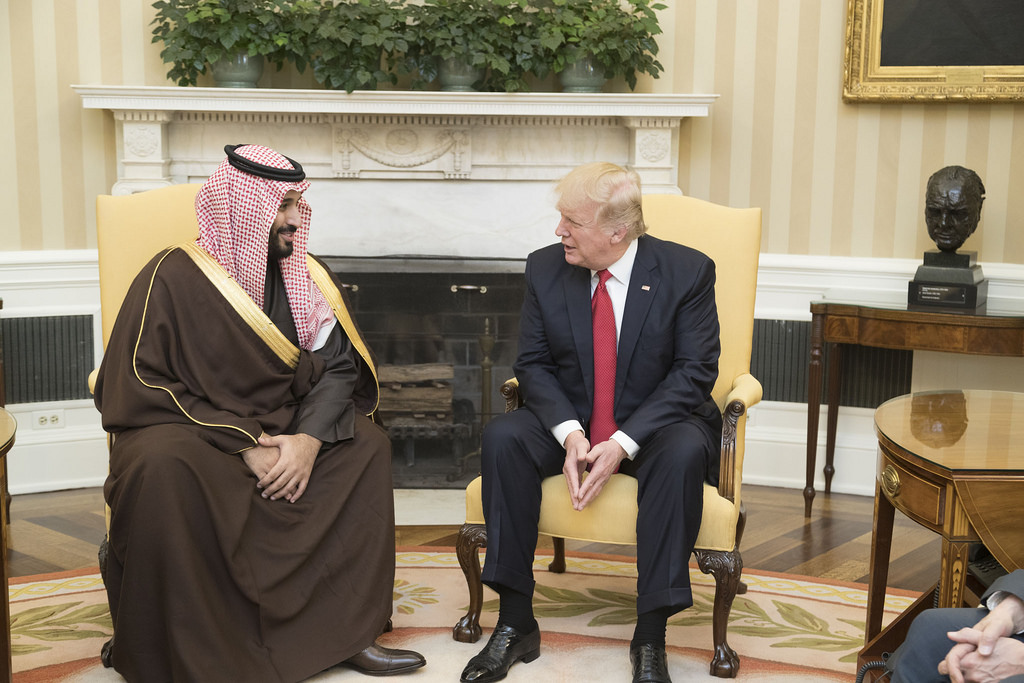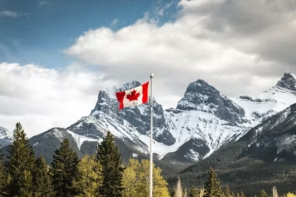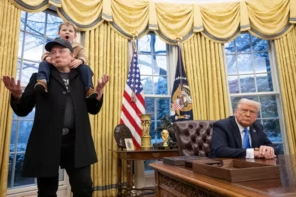A Saudi Arabia without oil dependence? That’s exactly what Mohammad bin Salman (MbS), Crown Prince of Saudi Arabia, plans to do through his Saudi Vision 2030 initiative. In a detailed plan to establish the Kingdom as a vibrant hub connecting three continents, the 33-year old Crown Prince aims to further develop Saudi Arabia’s tourism industry and diversify its economy, while ostensibly implementing progressive social reforms.
Through this initiative, the Public Investment Fund of Saudi Arabia (PIF) has organized an annual investment forum — the Future Investment Initiative (FII). Dubbed “Davos in the Desert”, Saudi Arabia hopes to use the forum to portray itself as a global power and entice many of the conference’s influential attendees to invest in the Kingdom’s burgeoning economy, exemplified by Neom, a $500 billion smart-city unveiled at the 2017 conference. Last year’s forum also included discussions about the future of artificial intelligence, cryptocurrency, and climate change, hosting the likes of IMF director Christine Lagarde, BlackRock CEO Larry Fink, and SoftBank CEO Masayoshi Son.
Striving to build upon last year’s momentum, the 2018 FII is currently being hosted in Riyadh’s lavish Ritz-Carlton Hotel, infamous for its use as a jail for over 200 Saudi businessmen and princes charged with corruption in 2017. The conference’s second installment was set up to be a roaring success, attracting hundreds of politicians, diplomats, and CEOs from around the globe.
The 2018 FII is currently being hosted in Riyadh’s lavish Ritz-Carlton Hotel, infamous for its use as a jail for over 200 Saudi businessmen and princes charged with corruption in 2017.
All that changed on October 2nd, when Saudi dissident and frequent Washington Post columnist Jamal Khashoggi entered the Saudi Arabian Consulate in Istanbul, hoping to obtain documents required to marry his fiancée. His fiancée waited outside the consulate for 11 hours, but Khashoggi never exited. A few days later, speculation arose that he may have been killed within the consulate. At first, Saudi Arabia maintained that Khashoggi left the consulate alive on October 2nd. But after mounting world pressure, leaks from the Turkish press claiming to have secured an audio recording of Khashoggi being beheaded and dismembered, and failure to provide proof of Khashoggi’s life, Saudi Arabia changed its position, proclaiming that Khashoggi was accidentally killed inside the consulate during a fight. Referred to as the “worst cover up ever” by U.S. President Donald Trump, the Saudi response concerning Khashoggi’s murder has sent the world into shock. Many, including Turkish President Recep Tayyip Erdogan, have suggested that Khashoggi’s murder was premeditated by high ranking Saudi officials, and quite possibly the Crown Prince Mohammad bin Salman himself.
Over the past couple of weeks, Khashoggi’s murder and the ensuing fallout have had a catastrophic effect on Saudi Arabia’s public image and relations with other countries; earlier this week, Germany halted arms exports to Saudi Arabia in a direct response to their involvement in the journalist’s death. But most strikingly, the debacle has put the entire FII at risk of failure. Weeks before Jamal Khashoggi walked through the doors of the Saudi consulate in Istanbul, the FII had a star-studded cast of attendees, including Uber CEO Dara Khosrowshahi, London Stock Exchange CEO David Schwimmer, and U.S. Treasury Secretary Steven Mnuchin, all of whom have since backed out. The case of Uber is especially intriguing, as Saudi Arabia owns a 5% ($3.5 billion) stake in the ride-sharing giant, with Yasir Al Rumayyan, the Managing Director of the PIF, sitting on Uber’s Board of Directors. In addition, Mastercard CEO Ajaypal Singh Banga, who sits on the FII advisory board, SoftBank’s CEO Masayoshi Son, who entered a $45 billion partnership with Saudi Arabia at last year’s FII, and Blackstone CEO Stephen A Schwarzman, who pledged $20 billion towards Saudi infrastructure developments, have all withdrawn from the forum.
The case of Uber is especially intriguing, as Saudi Arabia owns a 5% ($3.5 billion) stake in the ride-sharing giant, with Yasir Al Rumayyan, the Managing Director of the PIF, sitting on Uber’s Board of Directors.
Despite the mass exodus of attendees, a plethora of high status individuals have joined MbS in the desert this week. Among them are PepsiCo vice chairman Mehmood Khan, McKinsey & Company senior partner Hans-Martin Stockmeier, and HSBC Global Banking & Markets CEO Samir Assaf. Assaf is enthusiastic at the prospect of investing in Saudi Arabia, stating that “banks will be….find[ing] sources of financing and investments [in capital markets] including in Saudi Arabia.” Another prominent attendee is American banking behemoth Ken Moelis, whose firm, Moelis & Company is advising Saudi Aramco on their upcoming IPO. A nationally owned and operated petroleum and natural gas company, Saudi Aramco is thought by many, including Bloomberg News, to be the world’s most profitable company.
On Wednesday, MbS took the stage, leading a panel titled “How will visionary leadership transform the Arab world into a global economic powerhouse?” to discuss the ongoing progress of the Saudi Vision 2030 initiative. While the murder of Jamal Khashoggi strained relations with many federal and corporate partners, there is no sign that the world will cease doing business with the Kingdom; the U.S. and Saudi Arabia remain locked in a $6 billion arms deal, and many companies are sending other top executives to the FII in place of their CEOs. At some point, the world will have to decide between money and morals. And, despite the optics, money remains undefeated.








